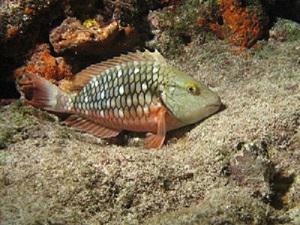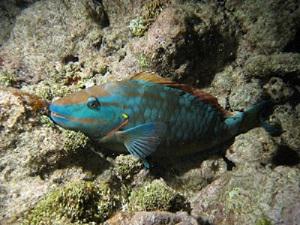Courtney E Cox
Other projects
16 Jul 2010
Effectiveness of New Belizean Fisheries Regulations on Restoring Grazer Populations and Coral Reef Resilience
15 Apr 2013
Genetic Structure of Stoplight Parrotfish across the Mesoamerican Barrier Reef
25 Jun 2015
Evaluating and Improving Coral Reef Conservation Strategies across the Mesoamerican Coral Reef
This project will continue a reef monitoring effort in Belize tracking community changes through time to measure the efficacy of Belize’s ban on herbivorous fish harvesting.

As the second largest barrier reef in the world, the Mesoamerican Reef provides habitat for thousands of marine species, a source of income for local fishermen, sustenance for the local community, and a source of national income through tourism. In recent decades, Caribbean coral reef ecosystems have experienced significant decline largely due to overgrowth of macroalgae resulting from the mass mortality of Diadema antillarum and overfishing of herbivorous fish (Gardner et al. 2003,Hughes 1994, Jackson et al. 2001). According to the Eco-Health Report Card published by the Healthy Reefs Initiative, the proportion of the Mesoamerican Reef in critical condition has increased from 6% in 2008 to 30% in 2010.

In 2009, the Belize Fisheries Department focused on reducing overexploitation of herbivorous fish by passing a law prohibiting the harvesting of parrotfish and surgeonfish. This new regulation serves as an alternative management strategy to marine protected areas (MPAs). This project will continue an effort initiated in 2009 to evaluate the effectiveness of the fishing ban in restoring fish populations and coral assemblages in Belize.
Data collected from 2009 to 2011 indicated increase in herbivorous fish biomass at roughly half of our sites, but no change in coral or macroalgal cover. Although we did not find an increase in coral cover, we may find increases in future years as two years of increased herbivore abundance may not have been sufficient to affect macroalgal and coral cover. Monitoring conducted in 2012 will provide further data needed to assess the long-term effects of the ban and correlations between changes in fish abundance and coral cover. In addition, we will identify changes in fish community structure to assess relationships between trophic levels.
Recommendations formed from the project results will guide Belizean coral reef habitat managers when evaluating current fishing regulations.